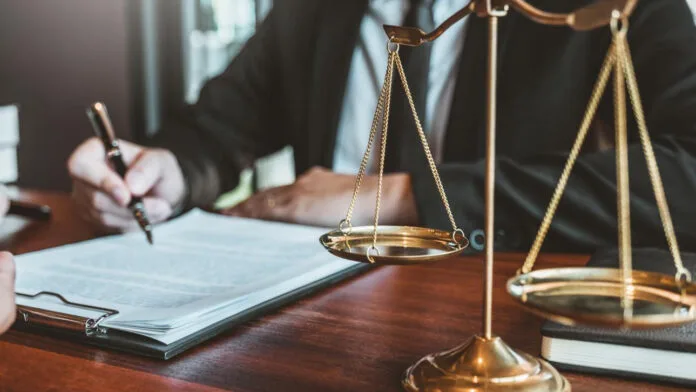
Cybersecurity Laws and Corporate Liability: A 2024 Perspective
December 8, 2024
Environmental Law Updates: Net Zero Targets and Legal Challenges
December 10, 2024Not getting legal aid is often like the end of the world, particularly where legal matters are concerned, and you have no private representation. Legal aid is about access to justice for people who cannot afford to pay privately. However, the application process may be quite difficult.
Denial could arise for many different reasons but typically are failing the financial means test, not being eligible under the merits test, or only when your case is outside the scope of what legal aid covers. It is essential to understand why your legal aid application was declined and what action can be taken to challenge or remedy the situation.
Reasons for Refusal of Legal Aid
- Financial Means Test:
One of the most commonly given grounds–most likely the principle ground–for refusal of legal aid, is the failure of the means test. Legal aid is not available to everyone, but only to persons whose income and savings are below certain amounts. There is a slight margin on income above that limit, and any asset such as property or savings would be fatal to eligibility. This would lead to the conclusion that even a person paying for a solicitor may face financial hardship. - Merits Test:
Fundamentally, the merits test ensures that your case has a reasonable chance of success and that its funding lies in the public interest. If your case is so weak that it is unlikely to succeed, your application will not be funded. - Case scope:
There are various other legal issues that cannot be covered by legal aid, such as many cases related to family law, disputes regarding employment and many consumer claims. These often require exceptional conditions, like domestic abuse or large public interests. - Incomplete Application:
Refusal may also occur if your application is incomplete or lacking necessary evidence such as proof of income or benefit verification, or legal merit regarding the case.
Read Also: How to get a free solicitor in Hounslow
What You Can Do Next
If you were denied legal assistance, do not panic. There are various suitable actions you could take towards ensuring you eventually get the legal support you need.
- Understand the Reason for Refusal
The refusal will usually be followed by a letter of explanation from the LAA or another equivalent agency. Go through this decision carefully to ensure you understand precisely the reasons behind the refusal. This will help you decide on the next appropriate action. - Appeal the Decision:
If you believe that the refusal was unfair or based on incorrect information, you may appeal the decision. This procedure allows you to introduce new evidence or make corrections or hold the opinion that your situation merits funding. You can draft your appeal with the help of your solicitor or adviser and submit your case with them to the LAA. - Inquire for Independent Review:
Some cases may allow you to request an independent review of the application. This means that it has to be constituted of another person, not the one who made the original decision, to ensure that it is fresh and free of bias. - Consider Exceptional Case Funding:
Exceptional case funding (ECF) is also likely to be eligible for someone who has a case of human rights issue or issue of considerable public interest. ECF covers cases that usually would not have been eligible for public funding but where it would breach a person’s rights under the European Convention on Human Rights not to provide assistance. - Search for Free or Inexpensive Options:
Where no legal aid can be found, it is necessary to seek alternate means of legal assistance. Organizations that offer free or low-cost legal advisory services include Citizens Advice and Hounslow Law Centre, together with some of the pro-bono networks such as Law Works and Advocate. Certain solicitors also extend free consultation visits; it is during such a visit that they will provide you with options available to you. - Self-Representation with Support:
If legal aid or something equal is not available, you might also choose to represent yourself in court (litigant in person). There are a lot of courts that provide resources and materials that would help people negotiate the process. And there are many charities that have information on how to prepare for your case.
The denial of legal assistance may, but does not have to, mark the end of the road. One way of obtaining legal assistance may still be understanding the reasons for the refusal, making an appeal where appropriate, or seeking other forms of assistance. Access to justice is a fundamental right, and even where the system has its own challenges, such resources and support are available to help an individual navigate the legal processes well.
For further advice please get in touch with our team today by calling 020 8538 0182 or +44 7857 809932, or you can email us on [email protected].
Please note these blogs are to enhance your knowledge and are not tailored advice, for specific advice please get in touch with our outstanding team.

